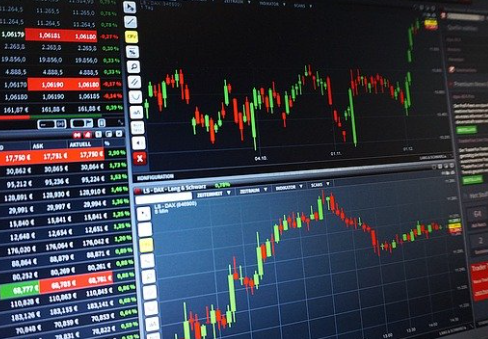Effective management of emotions is essential in forex trading since emotions such as fear, greed, and overconfidence may impair sound decision-making. Strategies to manage emotions comprise establishing precise trading objectives, creating a trading strategy, employing risk control tactics such as stop-loss orders, taking periodic breaks from trading to prevent exhaustion, and cultivating mindfulness and self-awareness to identify and regulate emotions.
Understanding the Importance of Emotional
Successful forex trading depends on effective emotional management. The presence of emotions such as fear, greed, and impatience can impair judgement and lead to poor decision-making, which can result in significant financial losses. Therefore, managing emotions is critical as it enables traders to maintain an objective mindset, make rational decisions, and reduce the impact of psychological biases on their trading strategies. Achieving effective emotional management requires self-awareness, self-regulation, and the ability to handle stress and pressure. Traders also need to develop a trading plan, implement risk management strategies, and practice mindfulness. By mastering emotional management skills, traders can enhance their trading performance, reduce stress and anxiety levels, and achieve long-term success in forex trading.
Management in Forex Trading
To ensure success in forex trading, it is crucial to adopt prudent management strategies, such as establishing achievable targets, crafting a robust trading plan, employing risk management techniques like stop-loss orders and appropriate position sizing, and continually monitoring and tweaking trading strategies as necessary. Furthermore, maintaining emotional composure is essential to avoid decisions based on fear or greed. Additionally, staying abreast of economic and political developments that might impact the forex market is important. By adhering to effective management techniques and exercising discipline, traders can enhance their probability of achieving success in forex trading.
Identifying Your Emotional Triggers in Forex Trading
Recognizing emotional triggers is critical in forex trading, given that emotions can significantly impact decision-making. Traders must take the time to evaluate past trades and their emotional responses to various scenarios. Fear of losing money, greed, and impatience are some common emotional triggers that traders should be mindful of. Additionally, external factors such as market volatility and news events may affect emotions. Once traders have identified their emotional triggers, they can formulate strategies to manage them, such as taking a break from trading, using a pre-established trading plan, or seeking assistance from a mentor or trading community. By addressing emotional triggers, traders can make more rational and profitable decisions when trading.
Practicing Mindfulness and Self-Awareness
In forex trading, practicing mindfulness and self-awareness are crucial skills for managing emotions. Mindfulness entails being present in the moment and acknowledging one’s thoughts, feelings, and sensations without evaluation. Through mindfulness, traders can become more conscious of their emotional states and recognize when fear or greed is driving their actions. On the other hand, self-awareness involves comprehending one’s strengths, weaknesses, and emotional triggers. By fostering self-awareness, traders can recognize the factors that influence their trading decisions and take measures to control them. By practicing mindfulness and self-awareness, traders can enhance their emotional management skills, make more knowledgeable trading choices, and minimize the impact of psychological biases on their performance.
Developing a Trading Plan and Sticking to It
To succeed in forex trading, it is critical to develop a comprehensive trading plan that outlines the trader’s goals, risk management strategies, entry and exit points, and criteria for assessing trades. Traders must set achievable expectations and adjust their plan as needed. Once a trading plan is established, it is crucial to follow it consistently. This requires discipline, patience, and avoiding emotional decision-making. Traders should regularly evaluate their progress and assess the effectiveness of their trading plan. By adhering to a trading plan, traders can reduce risks, increase profitability, and establish long-term success in forex trading.
Implementing Risk Management Strategies
To achieve success in forex trading and manage emotions, it is crucial to implement risk management strategies. Risk management refers to the process of recognizing, evaluating, and mitigating possible risks associated with trading activities. Effective risk management strategies consist of setting stop-loss orders, managing position size, diversifying portfolios, and limiting leverage. These approaches assist traders in restricting losses, sustaining discipline, and managing emotions during adverse trading circumstances. By implementing risk management strategies, traders can lessen the impact of negative emotions such as fear and anxiety, which may result in irrational decision-making and significant financial losses. Thus, integrating effective risk management strategies into a trading plan is indispensable for successful forex trading.
Taking Breaks and Stepping Away from Trading
Managing emotions in forex trading includes the crucial aspect of taking breaks and stepping away from trading. Traders may become fatigued, stressed, and overwhelmed, leading to poor decision-making and negative outcomes. By taking breaks, traders can refresh their minds, renew energy, and maintain emotional balance. Breaks can be used to reflect on trading strategies, evaluate progress, and address underlying emotional issues. Breaks could involve activities such as taking a walk, engaging in a different activity, or spending time with loved ones. Stepping away from trading can enhance focus, decrease emotional reactions, and enable traders to approach trading with a clearer mind, resulting in better decision-making and increased profitability.
Maintaining a Positive Mindset and Growth Mindset
In forex trading, managing emotions effectively necessitates maintaining a positive mindset and growth mindset. A positive mindset involves fostering an optimistic perspective and emphasizing opportunities rather than obstacles. This mindset enables traders to maintain resilience and persistence, even when confronted with difficult market situations. Conversely, a growth mindset entails embracing the learning process and considering mistakes as opportunities for personal and professional development. By adopting a growth mindset, traders can prevent discouragement due to losses and instead use them as valuable learning opportunities. The maintenance of a positive and growth mindset is indispensable for managing emotions, preserving confidence, and attaining long-term success in forex trading.
Reviewing and Analyzing Your Trades with Objectivity
To enhance performance in forex trading, it is crucial to review and analyze trades with objectivity. Traders must assess trades critically, considering both successful and unsuccessful trades. Objectivity refers to focusing on facts rather than emotions or biases. Traders should analyze trading data, including entry and exit points, position size, and risk management strategies. They should evaluate their performance against their trading plan and pinpoint areas for improvement. Although objectivity may be challenging, it is essential for making informed decisions based on data rather than emotions. By reviewing and analyzing trades objectively, traders can refine their trading strategies, make informed decisions, and increase their profitability.






